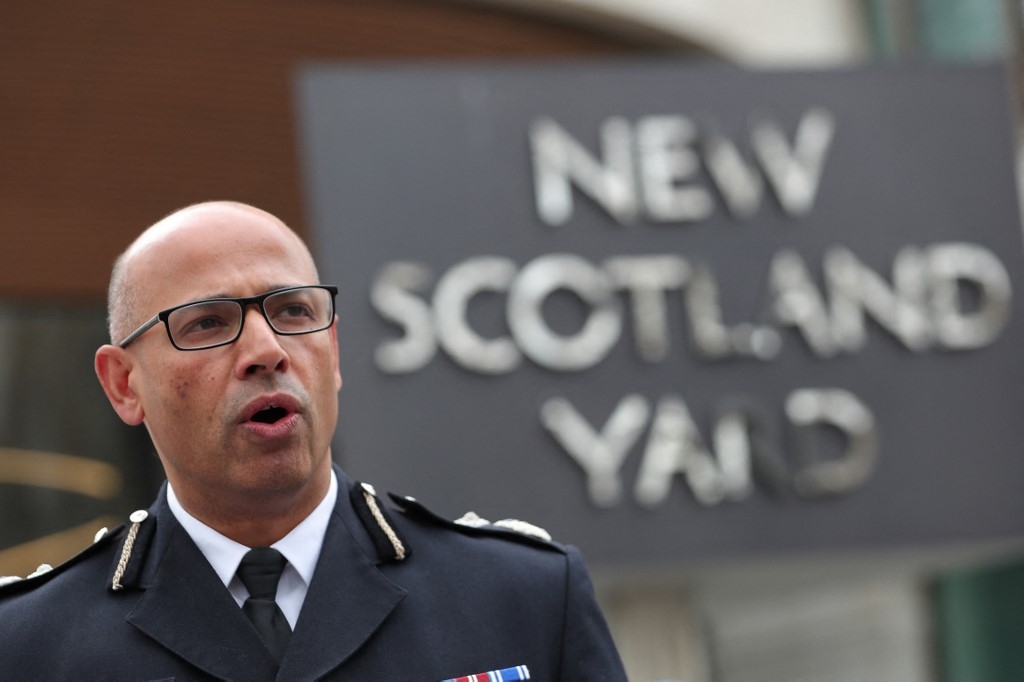UK counter-terror chief urges rights groups to reconsider boycott of Prevent review

The UK's top counter-terrorism police officer has said a boycott of the government's long-delayed review of the Prevent programme by a coalition of rights groups risks damaging its best chance at reducing extremism.
Neil Basu, the Metropolitan police's assistant commissioner for counterterrorism, told The Guardian on Monday that Prevent "is the most important pillar of our counter-terrorism strategy, and counter-terrorism police have long been advocates of an independent review".
Stay informed with MEE's newsletters
Sign up to get the latest alerts, insights and analysis, starting with Turkey Unpacked
"We will, of course, work with the government's chosen reviewer because we believe the process will give our Prevent practitioners the opportunity to share their many years of expertise and insight, with the hope of bringing lasting improvement to this vital strategy," he said.
Last month, the government chose its former head of the Charity Commission, William Shawcross, to lead its independent review of Prevent after its first choice, Lord Carlile, was forced to step down in December 2019 following a legal challenge over his past advocacy for the programme.
Shawcross' appointment was met with harsh criticism from more than a dozen rights groups and Muslim organisations who called for a boycott of the review. Prevent has long been dogged by complaints that it is discriminatory against Muslims.
The organisations, including Amnesty International, Liberty, the Open Society Justice Initiative and Cage, said Shawcross "patently expressed Islamophobic views", citing a 2012 speech where he said: "Europe and Islam is one of the greatest, most terrifying problems of our future."
Criticisms of Prevent review
Basu told The Guardian that he felt "great disappointment" when learning of the boycott. "I would urge them to reconsider because only when all sides of the discussion are heard can this review achieve what it sets out to achieve," he said.
Still, he said the participation of Prevent's critics in the official review was important and "only when all sides of the discussion are heard can this review achieve what it sets out to achieve".
"But it is my hope that even if they do not intend to participate in the review, they will consider working with counter-terrorism policing to try and find some common ground and ultimately help us improve our protection of those who need it."
The government had agreed to commission an independent review of Prevent in early 2019 in response to widespread criticism of the strategy among rights groups and Muslim advocacy organisations.
It was initially due to be completed by August 2020, but after significant delays, it is now due to be finished by this August. However, the government has still to announce the terms of reference for the review.
Prevent critics say an independent review must consider whether the programme should be scrapped altogether, while government ministers have suggested that the review's mission is to make it more effective.
According to a study published last July, Prevent had reinforced negative stereotypes about Islam and Muslims on university campuses and caused students to self-censor their views.
"It appears that Prevent has become strongly associated with the presumed dangers of radical Islam and with a perception that Muslims are dogmatic, intolerant and prone to violence," Mathew Guest, one of the report's authors, wrote in an op-ed for Open Democracy
Basu himself said in an interview with The Guardian in 2019 that Prevent had been the least successful part of the UK's counterterrorism strategy, and that the programme had been "badly handled".
Middle East Eye delivers independent and unrivalled coverage and analysis of the Middle East, North Africa and beyond. To learn more about republishing this content and the associated fees, please fill out this form. More about MEE can be found here.





